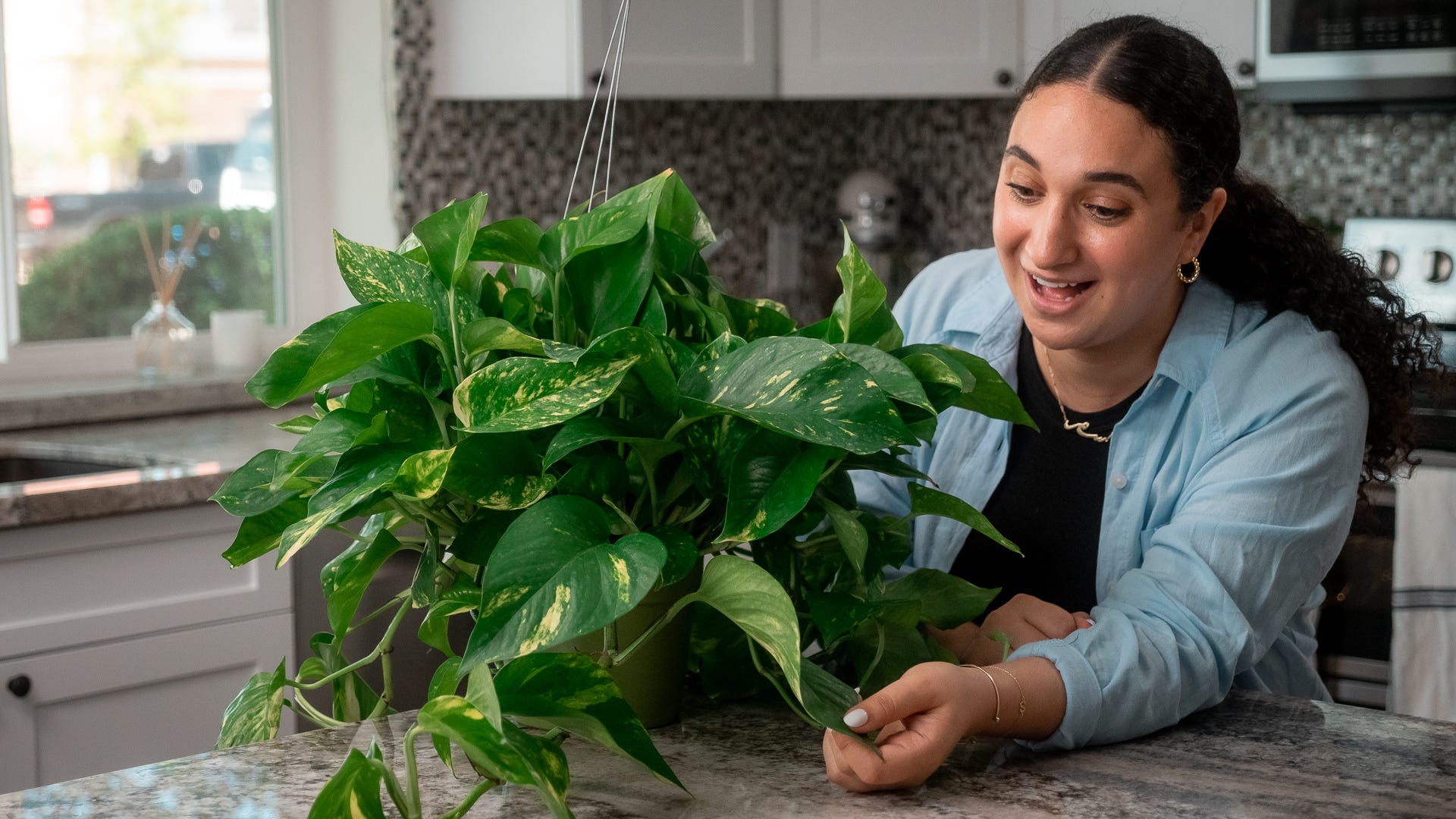Try these 11 hearty plants in garden or inside house to add color, greenery to the decor

- Eleven plants, including snake plants, ZZ plants, and pothos, can thrive both indoors and outdoors.
- Most of these plants prefer partial shade or indirect light, especially avoiding harsh afternoon sun.
- They generally can stay outside until October, before the first frost arrives.
- Specific care instructions vary, with some plants requiring daily watering (ferns) while others need fast-draining soil (succulents/cacti).
Wanting to add a little greenery to your garden this summer?
Jordan Belton, owner of Props and Pots, a plant store in Marion, Ohio, has a few recommendations for plants that can thrive indoors and outdoors.
For many of Belton's recommendations, the plants require partial shade or indirect light. Belton said plant owners should find where their sun rises and plant greenery there, as afternoon sun can be too harsh for some of the plants.
The plants can stay outside or inside until about a week before the first predicted frost. Once the weather dips, the plants can be taken indoors for winter.
"My safe rule is as soon as it hits October 1, if it's not cold outside yet, my plants are coming in, even if the frost hasn't hit," Belton said.
Here are 11 plants to expand your garden and brighten your home:
1. Snake plant
Light: Indirect light
Pet safe: Yes
The snake plant can handle heat and neglect.
2. ZZ plant
Light: Bright indirect light or partial shade
Pet safe: No
This plant is a low light plant.
"Both the snake (plant) and the ZZ (plant) can be in dang near darkness, so they're going to want to be people's sunrise plants, their front porch plants," Belton said.
3. Pothos
Light: Indirect light
Pet safe: No
Belton said the plants can grow anywhere as long as they're not in direct sunlight.
"They'll explode with growth," Belton said. "They love hanging baskets under covered patios."
4. Spider plant
Light: Dappled light
Pet safe: Yes
Spider plants enjoy the outdoor humidity summer can bring. One unique aspect of spider plants is how they add new growth.
"Spider plants just shoot off these weird little strands, and they just grow a bunch of little plants off of it," Belton said. "It's funny. They're little pom poms."
5. Rubber tree/Ficus
Light: Morning sun
Pet safe: No
Ficuses, nicknamed rubber trees, enjoy the warmth and humidity of being outside. Belton said once outside, "they just take off."
6. Philodendron (heart leaf/Brasil/Mican)
Light: Partial shade
Pet safe: No
Belton said Philodendrons are ideal plants for someone who is looking for a fast grower.
"They're big trailing, beautiful plants when they're put in hanging pots," she said.
7. Ferns (Boston/Majesty)
Light: Shade
Pet safe: Yes
Ferns enjoy the humidity of outside, but Belton described ferns as "water hogs," saying if the plant is put outside, they'll likely need water every day.
"When you pick up a fern, if that pot is light, it wants water," Belton said.
Belton keeps her ferns indoors, in her bathroom. The space gives the fern bright light, while exposing it to humidity everyday.
8. Coleus
Light: Indirect light
Pet safe: Yes
While technically a Coleus can be kept outdoors year-round, Belton keeps her indoors. The plant has many different colors that Belton said can be a nice pop color to any garden.
9. Palms (parlor, majesty)
Light: Bright indirect (filtered sun)
Pet safe: Yes
The plants have a "tropical vibe." They require filtered sun and water.
10. Succulents/Cacti
Light: Direct sunlight
Pet safe: No (but can vary)
While the plants do well in direct sunlight, watering them can be tricky. Belton recommends putting the plants in pots that are fast draining or plant them in well-draining soil to ensure they're not over watered due to rain.
11. Venus Flytrap
Light: Direct sunlight
Pet safe: Yes
This carnivorous plant thrives in the summer and goes dormant in the winter. The plant requires rainwater with a dish underneath them. In lieu of rainwater, caretakers can use distilled water instead.